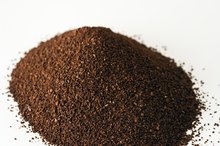What does fact checked mean?
At Healthfully, we strive to deliver objective content that is accurate and up-to-date. Our team periodically reviews articles in order to ensure content quality. The sources cited below consist of evidence from peer-reviewed journals, prominent medical organizations, academic associations, and government data.
The information contained on this site is for informational purposes only, and should not be used as a substitute for the advice of a professional health care provider. Please check with the appropriate physician regarding health questions and concerns. Although we strive to deliver accurate and up-to-date information, no guarantee to that effect is made.
Does Coffee Increase Adrenaline?
Coffee is used by many people as a boost in the morning. But every upper comes with its crash, and coffee is no different. In fact, the downsides of caffeine can affect not just your energy, but the functioning of important mechanisms in the body. That includes its influence on the adrenal gland and its release of adrenaline.
Caffeine's Function
Caffeine is a stimulant. It activates the central nervous system and can make you feel alert and energetic. But it can also prompt heightened activity in other parts of the body. Depending on how much caffeine you consume in a day you might experience increased jitters or shaking. Your heartbeat may increase, and certain glands may increase their production.
- It activates the central nervous system and can make you feel alert and energetic.
Adrenaline
Adrenal Exhaustion and Coffee
Learn More
Adrenaline is a hormone released by the adrenal gland. It is a stress-triggered hormone that is intended to heighten your physical strength for a short period of time. Release of the hormone is marked by an elevated heart rate, elevated blood pressure and a boost to your energy, according to Dr. Christiane Northrup 1. Caffeine may trigger the release of that hormone, giving you a quick burst of energy and physical strength followed by a crash marked by fatigue and irritability, in some cases.
- Adrenaline is a hormone released by the adrenal gland.
- Release of the hormone is marked by an elevated heart rate, elevated blood pressure and a boost to your energy, according to Dr. Christiane Northrup 1.
Controversy
Doctors disagree on exactly how caffeine affects your body's release of adrenaline, or whether it affects the adrenal glands at all. Project Aware lists caffeine as a substance to avoid when you are suffering from adrenal fatigue, and the University of Maryland Medical Center says the same thing about chronic fatigue, which may relate to the adrenal glands 24. A report from Brown University Health Education states that caffeine stimulates the adrenal gland to produce more adrenaline, which can boost your blood pressure 4.
Considerations
Quitting Caffeine & an Increased Pulse Rate
Learn More
Talk to your doctor if you are concerned about the effects of coffee on your adrenal glands. Your doctor may have suggestions about how to handle your caffeine consumption, including reducing or even stopping your caffeine use altogether. Be aware that other factors outside of caffeine use can influence your adrenal glands and the release of adrenaline. Decaffeinated coffee is an alternative to the caffeinated beverage that can be consumed without posing any stimulant-related risks to how your body releases adrenaline.
- Talk to your doctor if you are concerned about the effects of coffee on your adrenal glands.
- Your doctor may have suggestions about how to handle your caffeine consumption, including reducing or even stopping your caffeine use altogether.
Related Articles
References
- Christiane Northrup, MD: Adrenal Exhaution
- Project Aware; Adrenal Fatigue; Vicki Wade; January 2005
- Medline Plus: Caffeine
- Brown University Health Education: Caffeine
- Munir S, Waseem M. Addison Disease. Treasure Island, Fl: StatPearls Publishing; 2019.
- National Institutes of Health. Cushing's Syndrome: What is Cushing’s syndrome? National Institute of Diabetes and Digestive and Kidney Diseases (NIDDK). April 2012.
- National Institutes of Health. What are common symptoms of pheochromocytoma?National Institute of Child Health and Human Development. December 2016.
- National Institutes of Health. What are the treatments for adrenal gland disorders? National Institute of Child Health and Human Development. December 2016.
Writer Bio
Hannah Rose is a professional writer who is also preparing a doctoral dissertation focusing on program development. She received her Master of Arts in psychology in May 2011 and is pursuing her Doctor of Psychology at George Fox University with a focus on clinical psychology. She also works as a primary care therapist for a family medical clinic.









